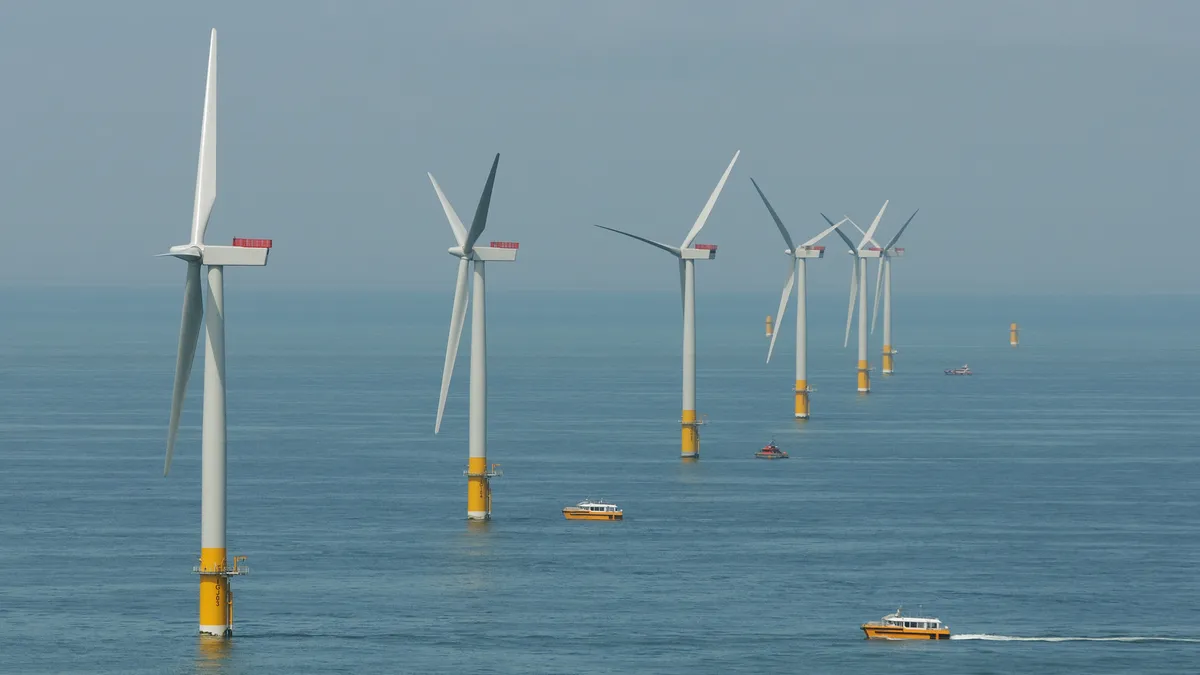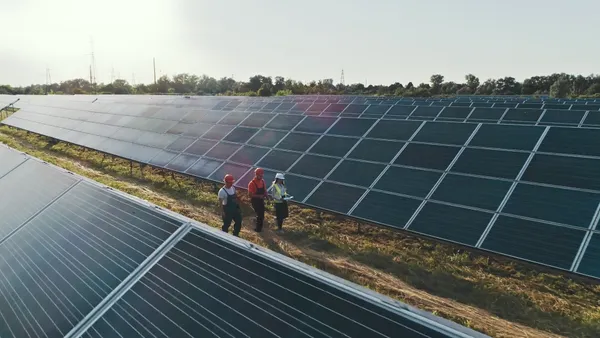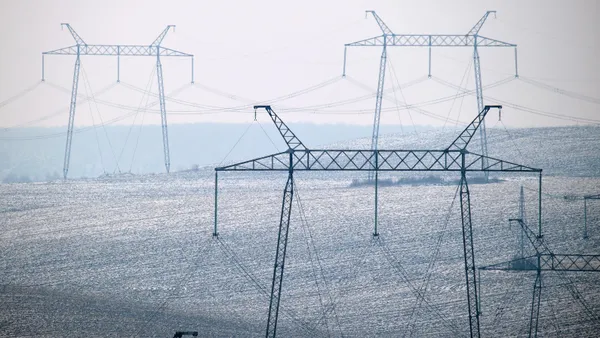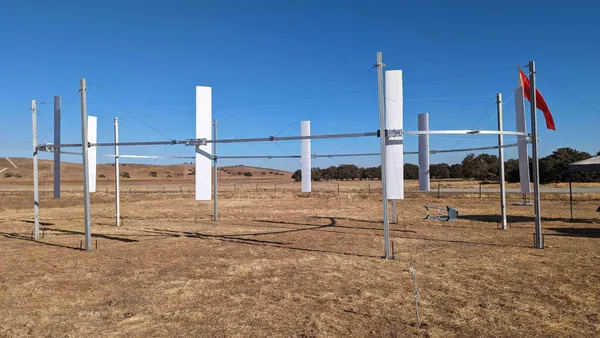Dive Brief:
-
Dominion Energy Virginia will abandon its planned 2.6-GW offshore wind farm if state regulators don’t reverse their decision to set a performance guarantee requirement for the $9.8 billion project, according to a rehearing request filed this week.
-
The Virginia State Corporation Commission’s decision that Dominion’s customers must be held harmless for any shortfall in energy production below the project’s expected 42% average annual capacity factor, measured on a three-year rolling average, is “untenable,” the utility said in a Monday filing with the agency.
-
“As ordered, [the performance guarantee] will prevent the project from moving forward, and the company will be forced to terminate all development and construction activities,” Dominion said.
Dive Insight:
Earlier this month, the SCC approved a rate rider for recovering the cost of Dominion’s Coastal Virginia offshore wind project and related onshore transmission facilities. The decision included the disputed performance guarantee for the project, which the agency said would protect ratepayers from unexpected cost increases.
According to Dominion, the performance guarantee requirement is unlawful and inconsistent with the utility regulatory framework that lets utilities recover reasonably and prudently incurred costs.
“There is no precedent in the record of any utility being forced to take on an obligation of this nature to guarantee a capacity factor for its generating units over their entire life or, equally importantly, to insure against the risk of events beyond the utility’s control and its reasonable or unreasonable conduct,” the Richmond-based utility said.
The utility said the open-ended performance guarantee would hold it responsible for events such as “acts of war or terror, catastrophic weather events or changes in weather patterns, system operating constraints unrelated to the generator, such as curtailments from the grid operator or economic curtailments.”
In addition to being against the law, the performance standard is “fatally overbroad and undefined, to such an extent that it threatens the viability of the project and frustrates clear legislative directive and intent to support utility offshore wind development.”
In part, Dominion said, it was improper to hold it to a 42% capacity factor requirement over three-year periods when that figure covers the wind farm’s expected 30-year life.
Dominion said it expects the project’s net capacity factor to average 42% over its life, but the utility’s economic analyses were based on a range of capacity factors between 38% and 46%.
“A reasonable performance standard … should provide for flexibility for the commission to determine future remedies based on specific facts and circumstances presented at a future time,” Dominion said. “This would include potential consideration of periods of performance above a threshold that may offset periods of performance below a threshold.”
The SCC on Wednesday accepted Dominion’s rehearing request but said the utility can begin recovering costs related to the wind farm using a special rate rider. Parties in the proceeding that oppose Dominion’s rehearing arguments must respond by Sept. 13, and the utility can reply to those arguments by Sept. 22.














